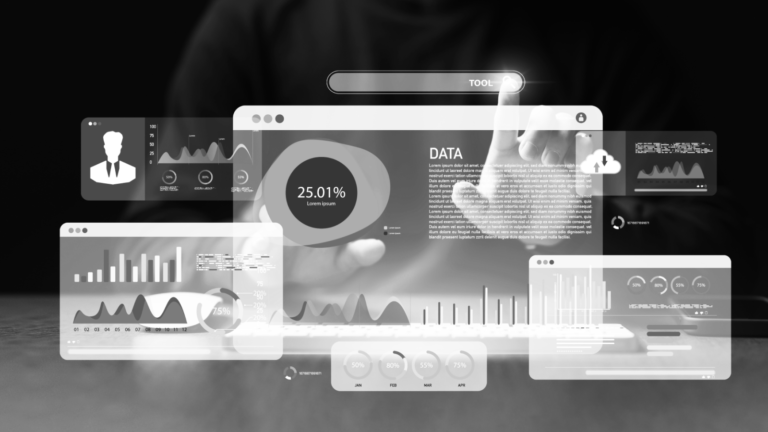Artificial intelligence (AI) is no longer a futuristic concept. It's a reality today that is reshaping many industries at once, including marketing. Harnessing vast amounts of data from user interactions, AI sifts through and analyzes patterns to provide insights that human marketers might miss, saving time when performing mundane tasks. can. We've put together a list of five innovative ways AI is being leveraged in the marketing space today.
1. Personalization and customer experience
Gone are the days of generic advertising targeting a wide audience. Today's consumers expect brands to understand their preferences and provide personalized content. AI plays a key role in this through:
• Data analysis: AI can analyze vast amounts of data from user behavior, purchase history, etc. and predict future behavior and preferences. Netflix movie recommendations and Amazon product recommendations are classic examples.
• Chatbot: These AI-powered tools provide 24/7 support, answering questions and providing personalized recommendations. Improve the user experience so your customers feel valued and heard.
By employing AI in this way, companies can tailor content, products, and services to individual users, increasing engagement and conversion.
2. Predictive analytics
Marketing is about always being one step ahead. AI's predictive analytics capabilities enable marketers to:
• Predicted trends: AI can analyze huge amounts of data from various sources to predict future trends in the industry. This allows brands to adapt their strategies proactively.
• Predict customer behavior: AI can predict future behavior by studying a customer's past actions and interactions. For example, if a customer buys a product every two months, AI can prompt marketers to send reminders or discounts right before their predicted next purchase.
This proactive approach ensures that marketing campaigns remain relevant and timely, maximizing their effectiveness.
3. Create content
It may come as a surprise, but AI can now assist with content creation, making it easier for brands to create consistent, high-quality content.
• Automated content: For certain areas, such as finance or sports, AI can generate reports and news based on data input. For example, the Associated Press uses automation for some of its financial reporting.
• Content recommendations: AI can suggest topics based on current trends and gaps in the market. Analyze what your audience is discussing and searching for and guide content creators to create relevant articles, blogs, and videos.
The Rolling Stone Culture Council is an invitation-only community for influencers, innovators, and creators. Are you eligible?
While AI cannot completely replace human creativity, it can certainly aid in the process and ensure content is consistent and relevant.
4. Programmatic advertising
Traditional advertising can often feel like a shot in the dark, but AI has changed that. Programmatic advertising uses AI to automate ad buying, placing ads at the right time, in the right place, and to the right audience.
• Real-time bidding: AI algorithms can assess which ads to show to which users in real time based on myriad factors such as demographics and behavior. This makes your ads more targeted and relevant.
• Optimized spending: AI’s predictive analytics allows marketers to determine the ROI of advertising campaigns and adjust spending to maximize results.
This targeted approach reduces wasted ad spend and increases conversion rates.
5. Enhance visual recognition
With the growth of visual platforms like Instagram and Pinterest, visual content has become paramount. AI’s visual recognition capabilities can help you:
• Image and video analysis: Brands can analyze which visual content performs best and adjust their strategies accordingly.
• User-generated content (UGC) insights: By scanning UGC, brands can understand how their products are used in real-world scenarios to guide future marketing campaigns and product development.
By leveraging the visual recognition of AI, brands can better understand the impact of their visual content and optimize accordingly.
final thoughts
AI is more than just a tool. It's a big change for the marketing industry. From personalizing user experiences to optimizing ad spend, the potential for AI in marketing is vast and growing. Brands that leverage these capabilities will likely have a competitive advantage and ensure they remain relevant in an ever-evolving digital landscape.
The future of AI in digital marketing is transformative, ushering in an era where accuracy, personalization, and predictive capabilities redefine the consumer experience. As algorithms become more adept at analyzing vast data sets, marketers will be able to harness this intelligence to create campaigns that deeply resonate with individual user preferences, maximizing engagement and her ROI. Become. Real-time adaptive content, driven by AI’s ability to identify nuances in user behavior, can keep ads and promotions more relevant and increase conversion rates.
Beyond automation, AI has the potential to enable predictive marketing, anticipating consumer needs before they even manifest and allowing businesses to proactively position themselves. However, this power comes with the responsibility of protecting user privacy, ensuring ethical data practices, and establishing trust as the basis of future digital marketing strategies.


